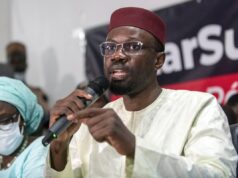A majority of Chief Executive Officers in Ghana are optimistic about the country’s economic prospects in 2025, according to PwC’s 28th Annual Global CEO Survey.
The report points to renewed confidence in the macroeconomic outlook, but reveals a more cautious sentiment when it comes to business performance at the firm level.
Over 70 percent of CEOs surveyed believe Ghana’s economy will experience growth this year. However, only 48 percent say they are confident about their own company’s revenue prospects — a noticeable decline from 65 percent recorded in the previous year. Even when extended over the next three years, confidence in revenue growth only rises to 57 percent, far below the 81 percent recorded in 2024.
This growing disconnect between optimism about the broader economy and uncertainty within individual companies reflects ongoing concerns about inflation, market instability, and the operating environment.
Although inflation has eased to 18.5 percent as of May 2025, its volatility over the past year — including a sharp spike in the third quarter of 2024 — has left business leaders unsure whether current improvements are sustainable.
Concerns also remain high around Ghana’s policy and regulatory climate. A significant share of CEOs described the country’s tax regime as poor or very poor, calling it a major constraint on business growth. Many also pointed to limited access to capital, unreliable energy supply, and policy unpredictability as critical challenges undermining investor confidence and long-term strategic planning.
In response to these pressures, PwC advises CEOs to adopt a more agile approach by strengthening data-driven decision-making and using scenario-based planning to navigate uncertainty. The report encourages firms to invest in innovation, rethink business models, and align their strategies with global shifts such as artificial intelligence adoption and climate sustainability.
While macroeconomic indicators may suggest Ghana is on a path to recovery, the survey shows that confidence at the operational level remains fragile — highlighting the need for policy reforms and a renewed focus on business resilience.








